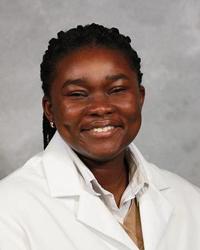UnityPoint Health - John Stoddard Cancer Center - Medical Oncology & Hematology Clinic

Information
Number of patients waiting reflects the current number of patients waiting to be seen. This number changes frequently and is not exact.
Hours & Directions
Hours of Operation
- Monday: 8:00 AM - 4:30 PM
- Tuesday: 8:00 AM - 4:30 PM
- Wednesday: 8:00 AM - 4:30 PM
- Thursday: 8:00 AM - 4:30 PM
- Friday: 8:00 AM - 4:30 PM
- Saturday: Closed
- Sunday: Closed
Medical Oncology & Hematology Clinic
The Medical Oncology and Hematology department at John Stoddard Cancer Center specializes in the diagnosis and treatment of cancer and blood disorders using advanced, medication-based therapies including chemotherapy, immunotherapy, targeted therapy and hormone therapy. These therapies may be used alone or alongside surgery and/or radiation or to help manage symptoms such as pain, fatigue and low blood counts. Our experienced, board-certified physicians and oncology-certified nurses also work with our infusion center to treat non-cancerous blood conditions like anemia, clotting disorders and low white blood cell counts. We work closely with each patient to develop a personalized care plan tailored to their unique needs and treatment goals.
We view the family as an important part of the care we provide. Our ultimate goal is to provide accurate, precise and timely service to cure or relieve discomfort for the patient diagnosed with cancer.
Accreditations & Recognition
Stoddard Cancer Center has been recognized as an accredited breast cancer center by the National Accreditation Program for Breast Centers (NAPBC) since 2014. Receiving care at a cancer center accredited by the NAPBC means you gain access to a full range of state-of-the-art cancer care services, clinical trials and a multidisciplinary team approach to coordinate the best cancer treatment options.
Stoddard Cancer Center is an accredited cancer center by the Commission on Cancer (CoC), a program of the American College of Surgeons. CoC accreditation demonstrates a commitment to providing comprehensive, state-of-the-art cancer care close to home.

Rachel Landgrebe, MSN, AGACNP, ARNP
Hematology Oncology, Medical Oncology, Hematology

Millicent Amankwah, MD
Hematology Oncology, Hematology, Medical Oncology

Jenny Cline, MSN, FNP-C, MPH, ARNP
Hematology Oncology, Hematology, Medical Oncology
Medical Oncology
Medical oncology is focused on the diagnosis, treatment and management of cancer using medication-based therapies including chemotherapy, immunotherapy, targeted therapy and hormone therapy. The therapies can be used alone or in combination with other treatment, such as surgery and/or radiation. Medical oncology therapies aim to shrink, slow or eliminate cancer cells. They are used to treat a wide variety of cancers, including solid tumors and blood cancers.
Treatment Options
Blood Transfusions
A blood transfusion gives healthy blood from a donor to replace cells a cancer patient may be missing. It doesn’t treat the cancer directly, but it helps the body stay strong during treatment by adding red blood cells, platelets or plasma.
- Cryoprecipitate Transfusions
- Granulocyte (White Blood Cell) Transfusions
- Platelet Transfusions
- Plasma Transfusions
- Red Blood Cell (RBC) Transfusions
Chemotherapy
Chemotherapy, or “chemo,” is a treatment that uses strong medicines to kill cancer cells. It’s called a systemic treatment because the medicine moves through the whole body, finding and destroying cancer cells that may have spread from the original tumor to other areas.
- Alkylating Agents
- Antimetabolites
- Anti-Tumor Antibiotics
- Corticosteroids
- Mitotic Inhibitors
- Platinum-Based Drugs
- Topoisomerase Inhibitors
Hormone Therapy
Hormone therapy is a treatment that changes or blocks certain hormones to help slow down or stop some cancers from growing. It is often used for cancers like breast cancer or prostate cancer that need hormones to grow.
- Androgen Deprivation Therapy (ADT)
- Aromatase Inhibitors
- Estrogen Blockers
- Ovarian Suppression
- Progesterone Therapy
Immunotherapy
Immunotherapy is a type of treatment that helps a person’s own immune system fight cancer. The immune system normally protects people from germs and sickness. With immunotherapy, it can be strengthened or adjusted so it can better find and destroy cancer cells.
- Bispecific Antibody Therapy
- Cancer Vaccines
- Cytokines
- Immune Checkpoint Inhibitors
- Immune System Modulators
- Monoclonal Antibodies
- Oncolytic Virus Therapy
Interventional Radiology
Interventional Radiology offers minimally invasive cancer treatments aimed at directly targeting and destroying tumors.
Targeted Therapy
Targeted therapy is a cancer treatment that uses special medicines to attack cancer cells directly. These medications work by blocking the parts of cancer cells that help them grow and spread, while trying to leave healthy cells alone.
- Angiogenesis Inhibitors
- BRAF and MEK Inhibitors
- Hormone Therapies
- Monoclonal Antibodies (mAbs)
- mTOR Inhibitors
- PARP Inhibitors
- Proteasome Inhibitors
- Tyrosine Kinase Inhibitors (TKIs)
Theranostics
Theranostics is a type of cancer treatment that combines diagnosis and therapy in one. Doctors use special medicines or radioactive materials that can both find cancer cells in the body and deliver treatment to those same cells.
Services Offered
-
Cancer Care
Find the highest quality care from our experienced team of oncology and cancer specialists at UnityPoint Health.Cancer Care
-
Blood Disorders (Hematology)
UnityPoint Health’s experienced hematology team works with the clinical research, diagnosis and treatment of blood, bleeding and clotting, and bone marrow failure disorders.Blood Disorders (Hematology)
-
Chemotherapy and Cancer Immunotherapy
Chemotherapy and Cancer Immunotherapy
At UnityPoint health we know that no two cancer journeys are the same and that is why our doctors use a variety of treatments for cancer. Learn about two of the more common therapies our doctors recommend when creating a treatment plan: chemotherapy and immunotherapy.
